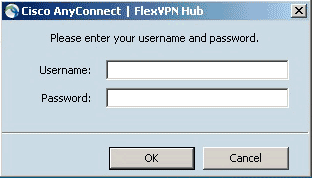OpenConnect is a cross-platform multi-protocol SSL VPN client which supports a number of VPN protocols: Download clean master for pc.
Ubuntu上安装anyconnect步骤 CodingCode 关注 赞赏支持 本文通过在win10上的virtual box上安装ubuntu的例子,说明anyconnect的安装过程。.
/linux-two-step-login-2.png)
- Cisco AnyConnect (--protocol=anyconnect)
- Juniper SSL VPN (--protocol=nc)
- Pulse Connect Secure (--protocol=pulse
- Palo Alto Networks GlobalProtect SSL VPN (--protocol=gp)
- F5 Big-IP SSL VPN (--protocol=f5)
- Fortinet Fortigate SSL VPN (--protocol=fortinet)
- Linux anyconnect split-tunnel. Improve this question. Follow edited Oct 6 '20 at 19:06. Asked Oct 6 '20 at 16:13. 147 5 5 bronze badges.
- Install Cisco AnyConnect on Ubuntu / Debian / Fedora Connect To VPN Server with Cisco AnyConnect from Linux Terminal If you used the installation method covered in our guide, the vpn script used to connect, disconnect, and check the status of VPN is located in the directory below.
- Just in case you do want the Ciso Anyconnect client working take a look at this blog. Just disable the Firefox Iced Tea web plugin and go to your VPN site. Have Ubuntu download the VPN installer and run the shell script. In my case Cisco Anyconnect VPN client was installed and available under the Internet section and works fine.
Anyconnect Linux Server
OpenConnect is not officially supported by, or associated in any waywith Cisco Systems, Juniper Networks, Pulse Secure, Palo Alto Networks, F5,or Fortinet, or any of the companies whose protocols we may support in the future.It just happens to interoperate with their equipment. Trademarks belong totheir owners in a rather tautological and obvious fashion.
An openconnect VPN server (ocserv), which implementsan improved version of the Cisco AnyConnect protocol, has also beenwritten.
OpenConnect is released under the GNU Lesser Public License, version 2.1.
Motivation
Development of OpenConnect was started after a trial of the Cisco AnyConnectclient under Linux found it to have many deficiencies:


- Inability to use SSL certificates from a TPM or PKCS#11 smartcard, or even use a passphrase.
- Lack of support for Linux platforms other than i386.
- Lack of integration with NetworkManager on the Linux desktop.
- Lack of proper (RPM/DEB) packaging for Linux distributions.
- 'Stealth' use of libraries with dlopen(), even using the development-only symlinks such as libz.so — making it hard to properly discover the dependencies which proper packaging would have expressed
- Tempfile races allowing unprivileged users to trick it into overwriting arbitrary files, as root.
- Unable to run as an unprivileged user, which would have reduced the severity of the above bug.
- Inability to audit the source code for further such 'Security 101' bugs.
Naturally, OpenConnect addresses all of the above issues, and more.
New protocols
Adding new protocols to OpenConnect is relatively simple, andadditional protocols have been added over the years since usingOpenConnect allows a developer to concentrate on the protocol itselfand most of the boring details about platform-specific tunnel managementand IP configuration, and handling of client SSL certificates, are alreadyresolved.
If you have a protocol which you think it makes sense to support inOpenConnect, especially if you are able to help with interoperabilitytesting, please file an issuein GitLab.
Consistent multi-protocol support
Wherever possible, OpenConnect presents a uniform API and command-lineinterface to each of these VPNs. For example,openconnect --force-dpd=10will attempt dead peer detection every 10 seconds on every VPN thatsupports it, even though the actual mechanism used may be protocol-specific.Protocol-specific features and deficiencies are described on theindividual protocol pages.

Overview
- The University of Delaware allows you to use Virtual Private Network (VPN) client software to log in from off campus to UD resources usually restricted to on-campus use. VPN access is also required for access to certain UD business systems from off-campus or an unsecured wireless network.
- VPN software allows you to establish a secure, point-to-point connection over the Internet, in essence letting you connect to UDelNet as if you were on campus.
- We recommend you use Cisco's AnyConnect VPN client to connect to UD, and have pre-configured versions of AnyConnect for Windows, Macintosh, and Linux systems. AnyConnect is also available for iOS, Android, and Kindle devices.
Installation
Windows - Requires administrative access.
- Right-Click on the downloaded file and select 'Run as administrator' to run.
- Accept all defaults.
macOS
- DO NOT double-click the installer as it will not successfully run that way. Instead, right-click on the AnyConnect.pkg and choose 'Open' from the pop-up menu to start the installer.
- On the ensuing dialog box that states, 'macOS cannot identify the developer..' of the app and asks, 'Are you sure you want to open the it?' choose 'Open.'
- Accept all defaults.
Linux
- Uncompress and unpack the tar file from the downloaded archive.
- The installer needs root privileges, so either log in as root or use the sudo command to run the shell script vpn_install.sh located in the VPN directory to install the AnyConnect VPN client.
iOS and Android Devices
Clear storage on android. Obtain the client software from Apple App Store or the Google Play Store and see configuration information link below.
Configuration
Directions for configuring the VPN software for all operating systems are located in the VPN Software help filesAnyconnect Linux Client Download
. If you require further assistance, contact your department's or college's IT staff or the IT Support Center.